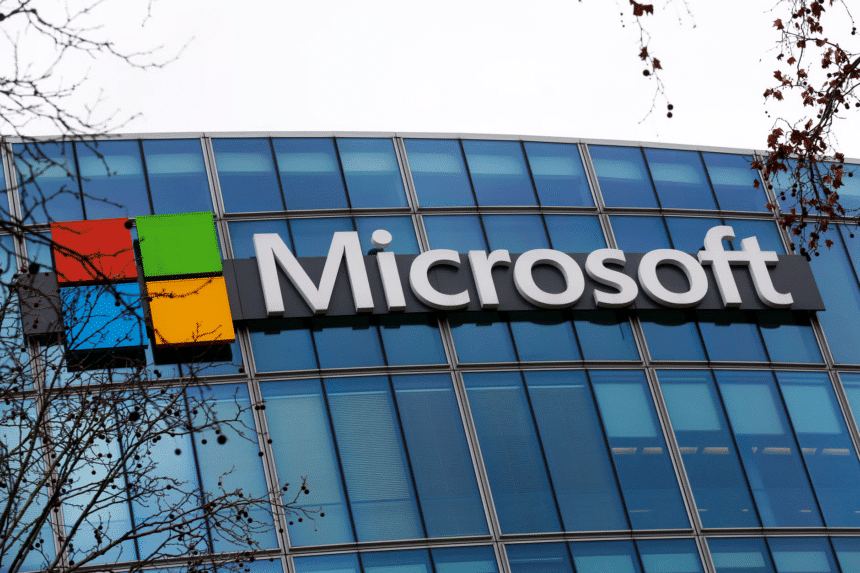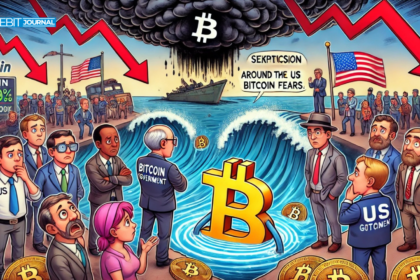A judge recently dismissed coders DMCA claims against Microsoft, OpenAI, and GitHub. This update has sparked the interest of stakeholders in the legal and tech sectors. The lawsuit involved Copilot, an AI-powered coding help on GitHub, plagiarising human-created code without giving credit or obtaining licenses. The coders who sued said the action was illegal because it ran counter to the DMCA, a landmark copyright statute in the United States.
This case arises at a time when copyright law’s relationship with AI is getting murkier by the day. These conversations concerning AI and copyright hit close to home in the cryptocurrency industry. It concerns platforms like Bitcoin (BTC) and Ethereum (ETH) that are constantly testing new frontiers in digital ownership and value generation. As these moral and legal concerns develop, the crypto community will undoubtedly be watching with bated breath. The BIT Journal has been closely following the case regarding coders’ DMCA claims against Microsoft. The DMCA lawsuit may set precedents for future issues in this area.
Coders’ Lawsuit Falls Short on Proving GitHub’s Code Reproduction
According to the plaintiffs in the case, the OpenAI platform scrapped GitHub. Then, without authorization, payment, or acknowledgement, trained GitHub Copilot using human-created code snippets. The lawsuit claims that the complainants were suing Copilot for $1 billion. According to the crypto update, the software line-for-line replicated human-generated code. The judge presiding over a multi-billion dollar class action lawsuit has partially rejected coders DMCA claims against Microsoft. The complaint centres around the alleged theft of intellectual property used to train the “GitHub Copilot” AI coding program.
It appears from the judge’s decision that the plaintiffs failed to present enough evidence to back up their claim. Microsoft and the generative AI business, which is embroiled in multiple litigation, can celebrate this victory. This case emphasizes how difficult it is to prove copyright infringement when dealing with content created by AI. Copilot and other AI systems learn from massive datasets, unlike classic instances of code plagiarism. The next step is to use the discovered patterns and structures to generate new code.
Even if the coders DMCA claims against Microsoft were dismissed, it doesn’t imply that AI coding aids like Copilot are completely safe. On the contrary, it highlights how complex legal frameworks are required to deal with the specific IP issues brought up by AI. There have been interesting parallels between this case and debates around digital ownership and creation in the crypto community. Similar to how this case is stretching code ownership restrictions, Bitcoin (BTC) and Ethereum (ETH) ecosystems are investigating digital asset ownership.

Based on the crypto update, the initial complaint was lodged in 2022. Many experts then predicted that this case would significantly impact the technology industry. For instance, James Vincent of The Verge states, “The suit could have a huge impact on the wider world of artificial intelligence.” By July of 2024, it seems like the accusation of coders has been mostly disregarded. The future of Microsoft, OpenAI, and GitHub is uncertain. However, dropping coders DMCA claims against Microsoft may allow the businesses to pursue AI-generated code without restrictions.
The Next Steps on the Dismissal of Coders DMCA Claims against Microsoft
Coders DMCA claims against Microsoft may have potentially far-reaching consequences for the IT sector. This move may make software developers and programmers concerned about the security of their work in an AI-driven environment. In an age where AI can produce code at unprecedented rates, the coding community may discuss how to protect intellectual property rights.
The community closely monitors developments surrounding coders’ DMCA claims against Microsoft. Certain parallels exist between the AI copyright disputes and the continuing blockchain-related issues. These concerns the nature of ownership and creation. According to news sources, Ethereum and Bitcoin initiatives address similar technical, creation, and ownership issues.
The DMCA case also shows the importance of knowing what the law says about new technology. The regulatory landscape is important for developers working with tokens like BTC and ETH. It will become more important for coders collaborating with AI systems to consider the legal aspects of their work. As we move forward, The BIT Journal will continue to monitor this event and its effects on the tech industry and crypto environment.





























